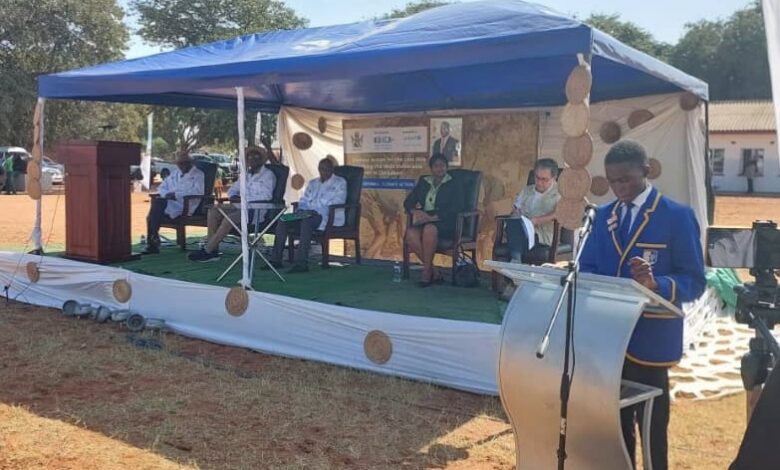Zimbabwe cracks down on plastic waste ahead of global wetlands summit

Jonathan Sibanda
Victoria Falls, Zimbabwe — The Zimbabwean government is moving toward holding plastic manufacturers accountable for the growing waste crisis by implementing Extended Producer Responsibility (EPR) schemes, a policy that could fundamentally change how plastic pollution is tackled in the country.
This announcement was made by Edward Samuriwo, Director of Environment in the Ministry of Environment, Climate and Wildlife, during the belated World Environment Day national commemorations held at Chamabondo Primary School in Victoria Falls. Samuriwo was delivering remarks on behalf of Minister Dr. Evelyn Ndlovu.
This year’s theme, “Beating Plastic Pollution”, carried the local emphasis: “Uniting Against Plastic Pollution”, with an added call to action: “Protecting Wetlands for Future Generations.” The latter resonates deeply, as Zimbabwe prepares to host the 15th Conference of the Parties (COP15) to the Convention on Wetlands next month—an event expected to draw global attention to the country’s fragile ecosystems.
Plastic pollution continues to choke urban centres and tourist destinations alike, with Victoria Falls — a Ramsar-listed wetland of international importance — increasingly affected by some residents’ poor handling of waste. Environmental groups have sounded the alarm for years about the threats posed by plastic litter and urban encroachment to this vital ecological area, home to unique biodiversity and a major tourism revenue stream.
EPR is a policy tool where manufacturers are held responsible for the entire lifecycle of their products — from design to disposal. Countries like South Africa and Kenya have already adopted EPR laws to curb plastic pollution. Zimbabwe now seems poised to follow suit.
> “We are exploring extended producer responsibility schemes where manufacturers should be held accountable for the end-of-life management of their products,” said Samuriwo.
“We are also strengthening enforcement mechanisms to ensure full compliance with existing environmental laws.”
Zimbabwe’s current waste management infrastructure is under strain, particularly in urban centres like Harare, Bulawayo, and tourism hubs such as Victoria Falls. Uncollected plastic waste not only degrades the environment but also clogs storm drains, harms wildlife, and affects human health.
The Victoria Falls wetlands — part of a Ramsar site — face growing threats from unregulated dumping and infrastructure development. Hosting COP15 offers Zimbabwe a rare opportunity to showcase leadership on wetland preservation and sustainable development, if tangible action follows political rhetoric.
The World Environment Day event featured a symbolic “Green March Against Plastic Pollution” through the city, as well as stakeholder exhibitions, tree planting, spoken word performances, traditional music, and educational theatre. The turnout reflected both civic engagement and growing public awareness around environmental protection.
With the world’s eyes soon to be on Victoria Falls, Zimbabwe’s environmental policy decisions in the coming weeks could set a precedent for how African nations can combine ecological stewardship with economic resilience.





